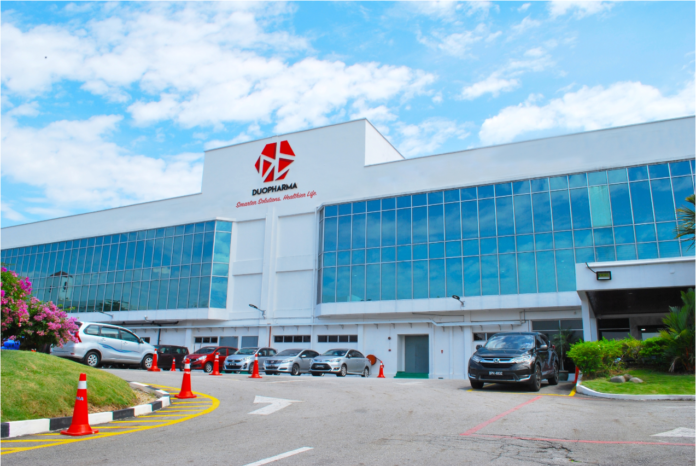Kuala Lumpur, 9 November 2020 – Members of the breast cancer and chronic myeloid leukaemia community have welcomed the manufacture of generic oncology drugs in Malaysia as affordable access and adoption of drugs with similar bio-equivalence with innovator therapies can improve better outcomes in oncology settings.
Oncologists and caregivers opine that key to the widespread and confident adoption of generics requires collaborative efforts including educational initiatives to improve knowledge about these drugs and develop positive attitudes that will empower physicians and patients to make rational choices towards their adoption and improve outcomes of cancer care.
The key opinion leaders welcomed plans by Duopharma Biotech Berhad’s (“Duopharma Biotech” or the “Company”) wholly owned subsidiary, Duopharma Biotech HAPI Sdn Bhd’s capacity and capability to manufacture a second oncology drug to treat chronic myeloid leukaemia.

Earlier in the year, Duopharma HAPI Sdn Bhd, Malaysia’s first and only Highly Potent Active Pharmaceutical Ingredient (HAPI) Plant successfully manufactured and commercialised its first product, Letrozole which is prescribed for breast cancer treatment.
The RM50 million HAPI Plant is equipped to produce a wide portfolio of cancer medicines to treat amongst others, breast cancer, lung cancer, colorectal cancer, cervical cancer, and blood cancer. The facility is also fully capable of producing medicines to treat hormonal imbalance and highly potent medicines for cardiovascular, central nervous system and musculoskeletal diseases. These products may also be manufactured for the export markets.
According to Dato’ Dr. Mohamed Ibrahim, an oncologist and director of Beacon Hospital, efforts by the Drug Control Authority (DCA) in ensuring uniform standards relating to the introduction and or the development of high-quality generics had played a critical role in raising the level of confidence and adoption and use of generic therapies.
“The DCA has protected the medical and patient community by ensuring that only high-quality and efficacious drugs are sold in Malaysia.
“Over the last decade, the quantum of generic drugs used in oncology has increased by 40-50 per cent in the private sector and I believe that it is even significantly higher in government hospitals,” said Dato’ Dr. Mohamed Ibrahim.
According to Professor Dr. Azlan Husin, Associate Professor at the Department of Medicine, Universiti Sains Malaysia, the majority of patients were acceptable to being treated with generic medicines.
“In the public sector, most of the oncology drugs are generics and the high level of adoption is based on demonstrated bio-equivalence of generics versus innovator drugs and their successful use in major markets such as the USA, UK and India,” added Prof Dr. Azlan who is also an expert on Clinical Haematology and Haematopoietic Stem Cell Transplantation.
Both Dato’ Dr. Mohamed Ibrahim and Prof Dr. Azlan commented that manufacturers of generics could help promote the adoption of their generic therapies by conducting more clinical trials or bio-equivalence studies to ensure the efficacy and safety of the generic drugs.
“I would like generic companies to work with hospitals, teaching hospitals and research institutes to conduct trials on certain clinical indications. Generic drugs companies could also alternatively sponsor their drugs so that the hospitals and research institutes can undertake more studies on their own,” said Dato’ Dr. Mohamed Ibrahim.
According to Prof Dr. Azlan, generic manufacturing companies should embark on robust R&D to ensure that the generic drug compound is the same or almost equal to originators. They should invest in local trials.

Both Dato’ Dr. Mohamed Ibrahim and Prof Dr. Azlan lamented over the relatively long lag time before generics options were introduced upon the expiry of the patent of innovator drugs.
President of the Breast Cancer Welfare Association Malaysia, Ranjit Kaur, shared that the availability and access to quality generics would greatly assist patients and their care givers in promoting a better treatment outcome.
“Affordability and access issues are especially prevalent amongst the financially challenged and there is evidence that out-of-pocket costs for such prescription drugs to treat chronic diseases not only impose a financial burden but result in reduction in medication adherence leading to worsening health outcomes.
“The availability of proven and competitively priced drugs will be godsend to the less financially secure communities. The escalating cost of medication has always been a challenge for the government in order to provide accessibility of effective medication to patients,” she added.
Duopharma Biotech Berhad Group Managing Director Leonard Ariff Abdul Shatar, said the Company’s objective in establishing the HAPI plant in Malaysia was premised on a mission to offer medication to address the lack of alternatives while delivering equitable and affordable access to prescription medications. The plant will also provide some level of self-sufficiency to the country in terms of the specific oncology medications.
“We hope by maximising the value of public and private pharmaceutical expenditure on health we would be able to ensure that the clinicians and patients’ choice on their treatment would be maintained,” he added.
The HAPI facility is a Good Manufacturing Practice (GMP) certified plant by the Malaysian National Pharmaceutical Regulatory Agency (NPRA). This ensures that production and quality control consistently meet the highest standards.
“Duopharma Biotech Group is embracing innovation and technology to serve patients who need specific and targeted therapies that can be produced by our new state-of-the-art HAPI Plant,” said Leonard Ariff.

Leonard Ariff Abdul Shatar, Duopharma Biotech Berhad Group Managing Director
The Company will actively seek collaboration with pharmaceutical companies across the globe to import high-end technologies and ventures that facilitate technology transfer which enables them to locally manufacture high-value drugs. If all goes well, this will further strengthen the Company’s position as the leading pharmaceutical player in Malaysia and achieve its target of being a leading pharmaceutical company in Southeast Asia.
“We are widening our product portfolio in offering not just oncology medicines but also psychotropic drugs, which is an emerging market in Malaysia.
“Duopharma Biotech has already established a strong presence in the anti-psychotic sector and is collaborating with our partners to bring in more locally manufactured psychotropic drugs into our pipelines due to its huge market potential,” Leonard Ariff added.







